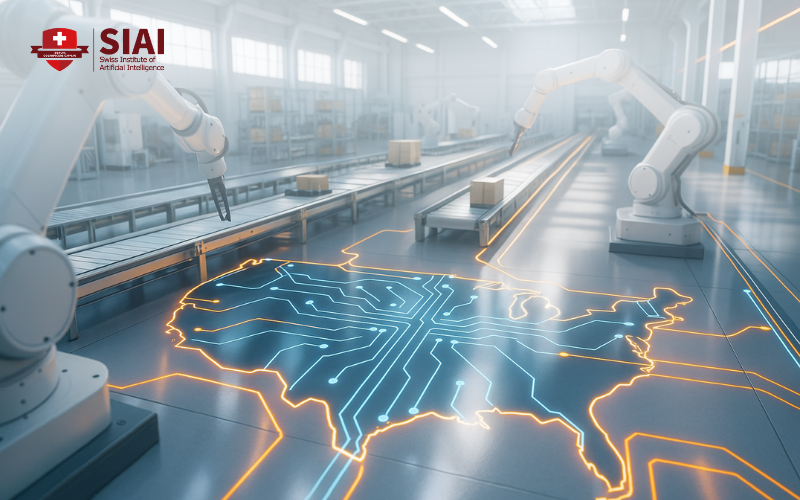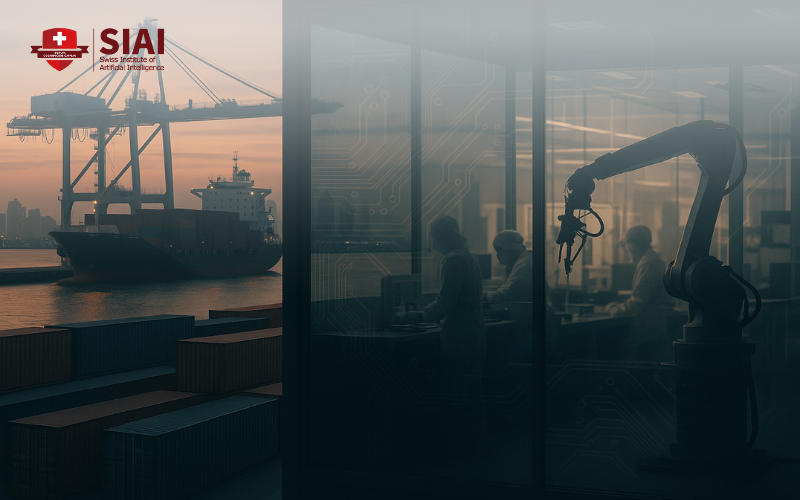Tech



Confidence follows identity more than facts Schools should teach election procedures and prebunk manipulation Local transparency and routine audits build resilience when results disappoint The most telling number from the
Read More
Germany’s reputation for efficiency hides massive losses from excessive bureaucracy Evidence from trains, bakeries, and schools shows that cutting redundant processes boosts performance and retention.
Read More

Tariffs framed as job protection often act instead as taxes on critical inputs Employment in U.S.
Read More
This article is based on ideas originally published by VoxEU – Centre for Economic Policy Research (CEPR) and has been independently rewritten and extended by The Economy editorial team. While inspired by the original analysis, the content presented here reflects a broader interpretation and additional commentary. The views expressed do not necessarily represent those of VoxEU or CEPR.
Read More
This article was independently developed by The Economy editorial team and draws on original analysis published by East Asia Forum. The content has been substantially rewritten, expanded, and reframed for broader context and relevance. All views expressed are solely those of the author and do not represent the official position of East Asia Forum or its contributors.
Read More
This article is based on ideas originally published by VoxEU – Centre for Economic Policy Research (CEPR) and has been independently rewritten and extended by The Economy editorial team. While inspired by the original analysis, the content presented here reflects a broader interpretation and additional commentary. The views expressed do not necessarily represent those of VoxEU or CEPR.
Read More
This article was independently developed by The Economy editorial team and draws on original analysis published by East Asia Forum. The content has been substantially rewritten, expanded, and reframed for broader context and relevance. All views expressed are solely those of the author and do not represent the official position of East Asia Forum or its contributors.
Read More
For two decades, we've treated language as a human input/output problem: fingers to type, lungs and lips to speak, and years of training to master a second language. That design hypothesis has just been broken. In August 2025, a team led by Stanford reported a brain implant that decoded "internal speech" — silent, self-generated words — at the command with up to 74% accuracy from a vocabulary of 125,000 words, protected by a thought password that prevented accidental decoding in about 98% of cases.
Read More
In July 2025, Google DeepMind reported that the Gemini "Deep Think" system solved five of the six problems of the International Mathematical Olympiad for 35/42 points - gold medal level from the competition's scoring rubric. This is not just a feat of technology. It is a testament to the potential of artificial intelligence to inspire admiration and curiosity, sparking new ideas and approaches in education.
Read More
Seventy-two percent of U.S. teens have used an AI "partner," and more than half say they use one regularly. That's not a niche. It's the new default for teen relaxation, practice talks, and (increasingly) advice on familiar problems. At the same time, a national data snapshot shows that 54% of 12-17-year-olds report difficulty getting the necessary mental health care.
Read More
A recent wave of coverage claimed that Reinforcement Learning (RL) had leaped pure math by navigating the notoriously thorny Andrews-Curtis landscape, downplaying long-term potential counterexamples and hinting – breathlessly – at tools that could one day predict stock crashes, pandemics, and even climate disasters years in advance. The research team made progress: by combining the RL standard with intelligent motion compression ("supermoves"), they found paths through cases that had resisted search for decades.
Read More
This article was independently developed by The Economy editorial team and draws on original analysis published by East Asia Forum. The content has been substantially rewritten, expanded, and reframed for broader context and relevance. All views expressed are solely those of the author and do not represent the official position of East Asia Forum or its contributors.
Read More
This article was independently developed by The Economy editorial team and draws on original analysis published by East Asia Forum. The content has been substantially rewritten, expanded, and reframed for broader context and relevance. All views expressed are solely those of the author and do not represent the official position of East Asia Forum or its contributors.
Read More
This article was independently developed by The Economy editorial team and draws on original analysis published by East Asia Forum. The content has been substantially rewritten, expanded, and reframed for broader context and relevance. All views expressed are solely those of the author and do not represent the official position of East Asia Forum or its contributors.
Read More
This article was independently developed by The Economy editorial team and draws on original analysis published by East Asia Forum. The content has been substantially rewritten, expanded, and reframed for broader context and relevance. All views expressed are solely those of the author and do not represent the official position of East Asia Forum or its contributors.
Read More
This article is based on ideas originally published by VoxEU – Centre for Economic Policy Research (CEPR) and has been independently rewritten and extended by The Economy editorial team. While inspired by the original analysis, the content presented here reflects a broader interpretation and additional commentary. The views expressed do not necessarily represent those of VoxEU or CEPR.
Read More
This article was independently developed by The Economy editorial team and draws on original analysis published by East Asia Forum. The content has been substantially rewritten, expanded, and reframed for broader context and relevance. All views expressed are solely those of the author and do not represent the official position of East Asia Forum or its contributors.
Read More










